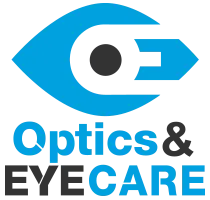What is Macular Degeneration?
Age-related macular degeneration, or just macular degeneration, affects mostly people over 50 and is the leading cause of vision impairment in that age group. AMD may progress slowly, taking decades before producing noticeable symptoms. In other cases, macular degeneration happens more quickly, especially if that person is at risk for developing AMD. While age is one risk factor, Ashburn eye doctors want their patients to know that smoking and genetics also play roles in whether you may be diagnosed with AMD. Research also indicates that macular degeneration is less common among Hispanics and African-Americans than Caucasians.
Although macular degeneration does not lead to total blindness, it can lead to extensive loss of your central vision in one or both eyes. With AMD, you retain your peripheral vision while losing your field of focus vision, which can dramatically interfere with your ability to drive, work, recognize faces and perform other daily tasks.

How Does Macular Degeneration Impair Vision?
Composed of millions of photoreceptor cells necessary for clear, central vision, the macula is an extremely sensitive component of your retina, that part of your eye responsible for transforming incoming light into electrochemical signals and sending these signals to your brain for interpretation. When your macula suffers deterioration due to aging or trauma, these photoreceptor cells cannot absorb incoming light so the retina is able to process this light. Consequently, a damaged macula will cause the center area of your vision to appear shadowy, blurry and distorted.
Wet and Dry Macular Degeneration Explained by Our Ashburn Eye Doctor
The primary reason behind the development of symptoms of macular degeneration is call drusen, or deposits of extracellular material under the retina. Sometimes, abnormal blood vessel growth under retina accompanies drusen deposits. This type of AMD is called “wet” macular degeneration, a less common but faster progressing form of AMD.
In nearly all cases, optometrists diagnose patients with the “dry” form of macular degeneration. Caused by thinning and aging of macula tissues, dry AMD presents only drusen development under the retina. People with dry macular degeneration experience vision loss so gradually they assume it is nothing more than age-related vision reduction. Consequently, they often neglect to visit their doctor of optometry for a comprehensive eye and vision examination.
How is a Diagnosis of Macular Degeneration Determined by Our Ashburn, VA Optometrist?
Since the early and middle stages of macular degeneration are usually asymptomatic, AMD requires a dilated eye examination for accurate diagnosis. Eye exams for detecting AMD may also include visual acuity tests, fluorescein angiograms, optical coherence tomography (OCT) and having patients look at the Amsler grid, a standardized grid comprised of dark lines that disappear or become wavy if you have AMD. Optical coherence tomography is similar to ultrasound technology involving light waves capturing images of tissues to be interpreted by optometrists as detailed x-rays. In addition, eye doctors will also inspect your retina for signs of drusen deposits or pigmentary changes due to breakdown of pigmentary cells.
Eye Treatment for Macular Degeneration for the Surrounding Communities of Ashburn, Broadlands, Waxpool, Sterling, Brambleton, and Lansdowne, VA
Treatments are not yet available to reverse dry AMD. Instead, optometrists help patients manage this condition by urging them to not smoke, eat healthier foods (especially fish and green, leafy vegetables), maintain an acceptable blood pressure reading and engage in moderate exercise. In addition, Ashburn eye doctors can assist AMD patients with using low vision aids, such as stand or spectacle magnifiers, reading glasses, absorptive filters, telescopes and reading stands.
Medications that stop abnormal growth of blood vessels in the eye are available to slow progression of wet macular degeneration. Our eye doctor injects the medication into affected eyes every month to inhibit vessel growth, shrink blood vessels and allow cells to regain some of their functioning.
If you are over 50 and have not seen your doctor of optometry in the past two years, please call Optics&EYECARE today at (703) 687-4719 to schedule an appointment. We proudly serve residents of Ashburn, Sterling, Broadlands, Lansdowne, Brambleton, Waxpool and their surrounding areas.


